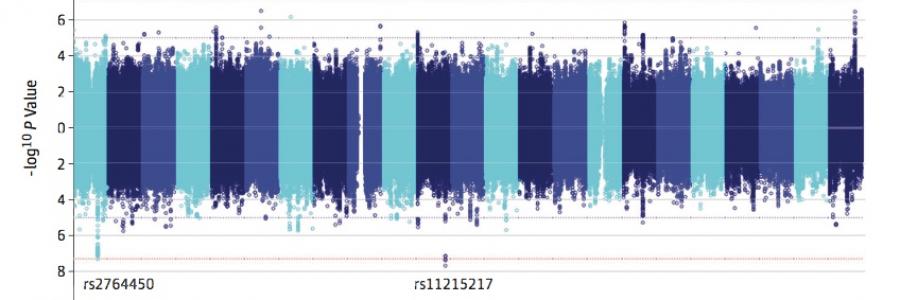
PhD student Jorim Tielbeek from CTGlab and VUMC publishes in JAMA Psychiatry
Individual genes do not play a major role in the development of antisocial behaviour. The combined effect of all genes, on the other hand, can explain some of the differences in antisocial behaviour. This is the conclusion of an international research effort among more than 25,000 participants, led by researchers Jorim Tielbeek, Arne Popma, Tinca Polderman and Danielle Posthuma of VUmc and VU, CNCR-CTG. The research was published October 4, 2017 in JAMA Psychiatry.
PhD student Tielbeek: ‘This is important news since some legal experts have overestimated the conclusions that can be drawn from previous genetic studies, often for purposes of mitigation at sentencing. Mitigation on the basis of one or a few risk genes is highly debatable and does not validly reflect the scientific evidence.’
A worldwide collaborative effort of researchers examined DNA of more than 25,000 participants to find out which genetic influences impact on antisocial behaviour. Contrary to previous studies, the current research does not provide any evidence for the involvement of individual genes with strong effects – such as the’ warrior gene’ Monoamine oxidase A (MAOA) – in the development of antisocial behaviour.
The effects of individual genes are minuscule, according to the study, yet the combined effect of all genes can explain a substantial part of the variation (5%) in antisocial behaviour. In addition, the study shows that genes that are positively associated with educational attainment are negatively related to antisocial behaviour. This finding is important because it may provide insight into the developmental pathways that underlie the association between academic failure and antisocial behavior.
The researchers emphasize that the genetic influences can only explain part of the group differences in antisocial behaviour. Environmental influences such as childhood trauma are evenly important. Tielbeek: ‘Future research should focus on the interaction between biological, psychological and environmental factors. Discoveries obtained from such interaction studies may contribute to more advanced explanatory models of the complex origin of antisocial behavior, thereby ultimately aiding prevention and intervention strategies’.
This work was carried out with a research talent program grant from NWO awarded to Tielbeek.
The paper can be viewed online from Jama Psychiatry.